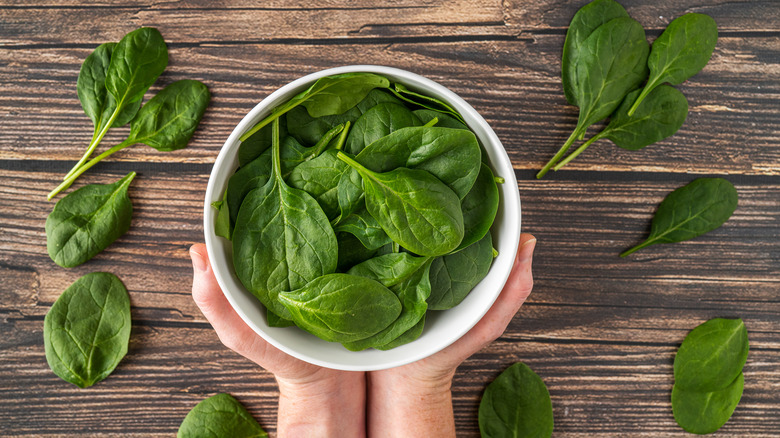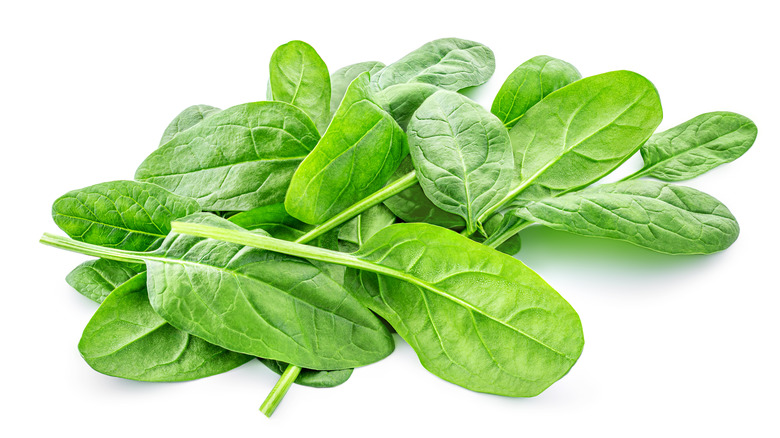The Maximum Amount Of Spinach You Can Safely Eat Each Week
Popeye may eat spinach by the can, but a more moderate approach is advised for the rest of us. Yes, spinach is a powerhouse of nutrition and positive health benefits. As Healthline notes, spinach is rich in vitamins, minerals and essential nutrients, improves eye health, helps to reduce blood pressure and oxidative stress, and may even help prevent cancer. But according to MedicineNet, there can also be side effects for those who eat an excess of the leafy green vegetable.
Too much spinach, whether fresh or cooked, MedicineNet observers, can actually lead to mineral deficiency, as well as other problems. This is due to the high levels of oxalic acid and purines in spinach. The former binds with minerals in your body (think calcium, zinc, and magnesium) and thus hinders absorption of others that are needed. Did we mention oxalic acid can also trigger kidney stones? Well, it can. The high purine content, meanwhile, is an aggravating factor for conditions like gout and joint pain. And that's not all. Excessive spinach consumption can also cause digestive issues and allergic reactions (spinach contains histamine), and pose problems for those using blood-thinning medications.
How much spinach is too much?
The blood thinning, or anti-coagulent issue is related to spinach's high K1 vitamin content, Healthline observes. Some people may also experience stomach cramps after eating too much spinach, which Livestrong reports is a function of a condition called histamine intolerance. Spinach is also very high in fiber, which could cause digestive issues like stomach cramps or bloating ... although typically these symptoms subside after a few days as one's body develops a tolerance to the increased fiber intake.
Sounds like a lot, right? The good news is that eaten in moderation spinach provides nothing but positive health benefits. Although it's difficult to find authoritative limits for spinach consumption on a daily or weekly basis, MedicineNet confirms that a bowl a day, a moderate amount, is safe for most people. The exceptions, of course, would be those with specific conditions, or those taking specific medications. Per Healthline, people at a risk for kidney stones or taking blood thinners should consult their healthcare provider before eating large amounts.

